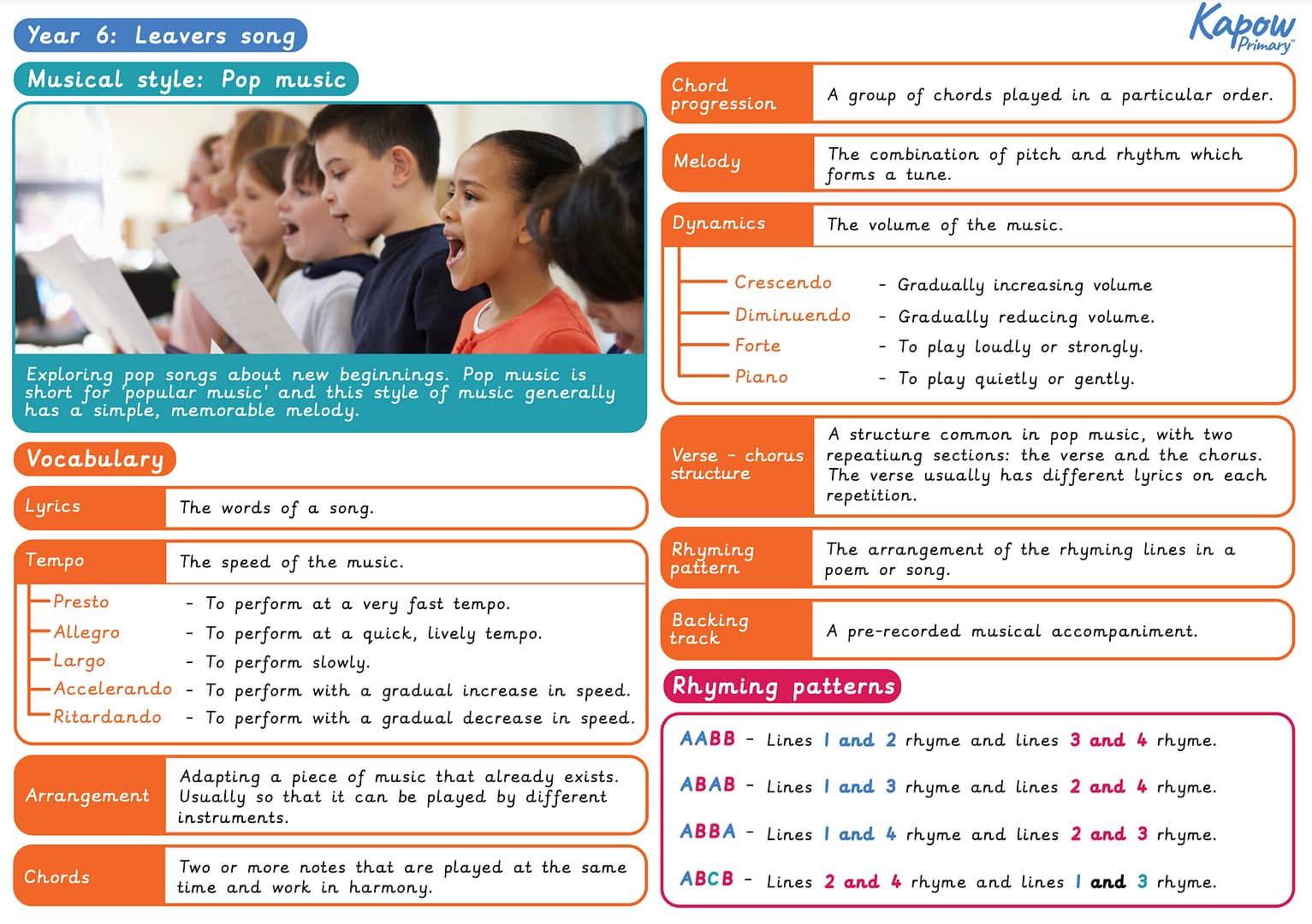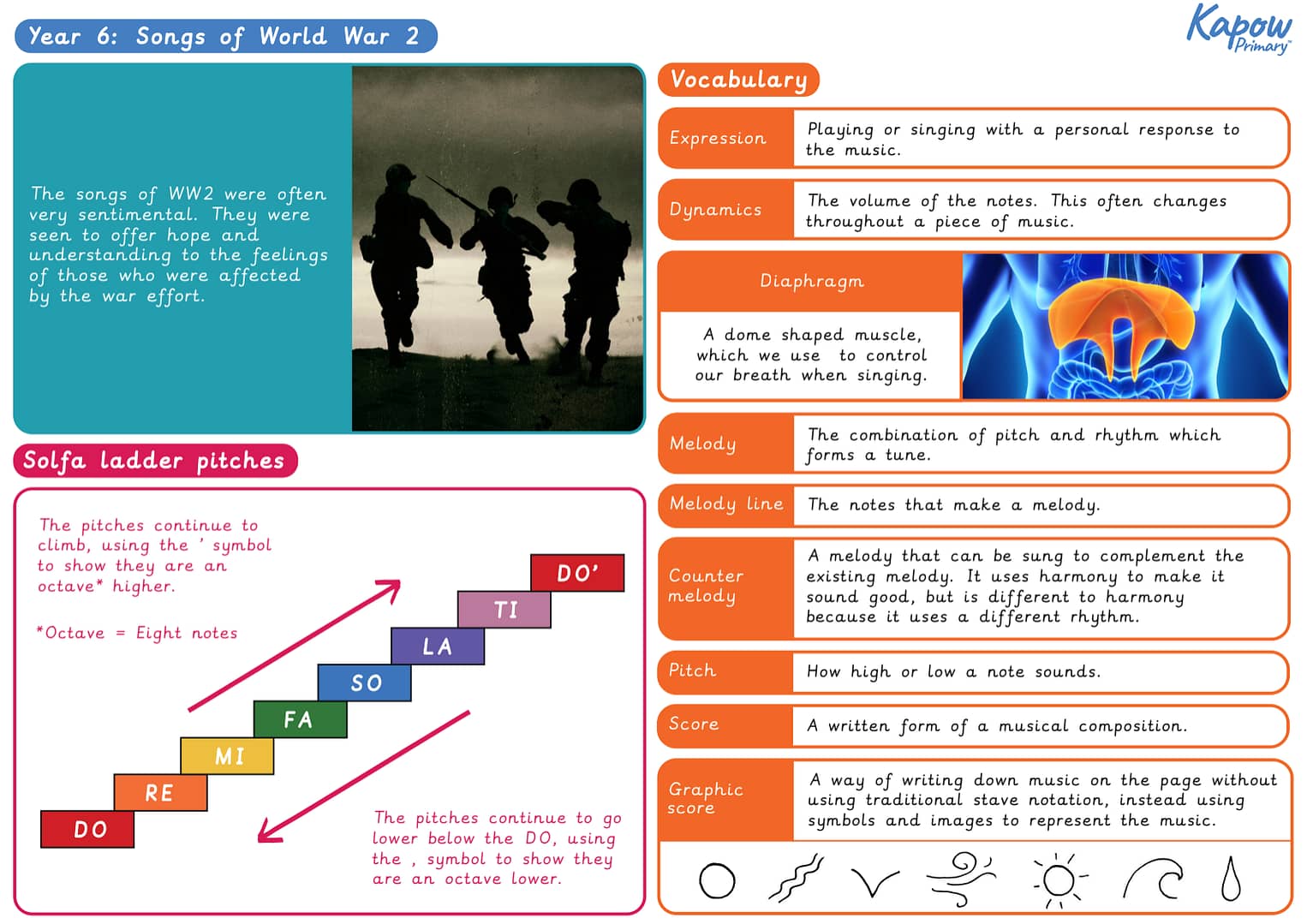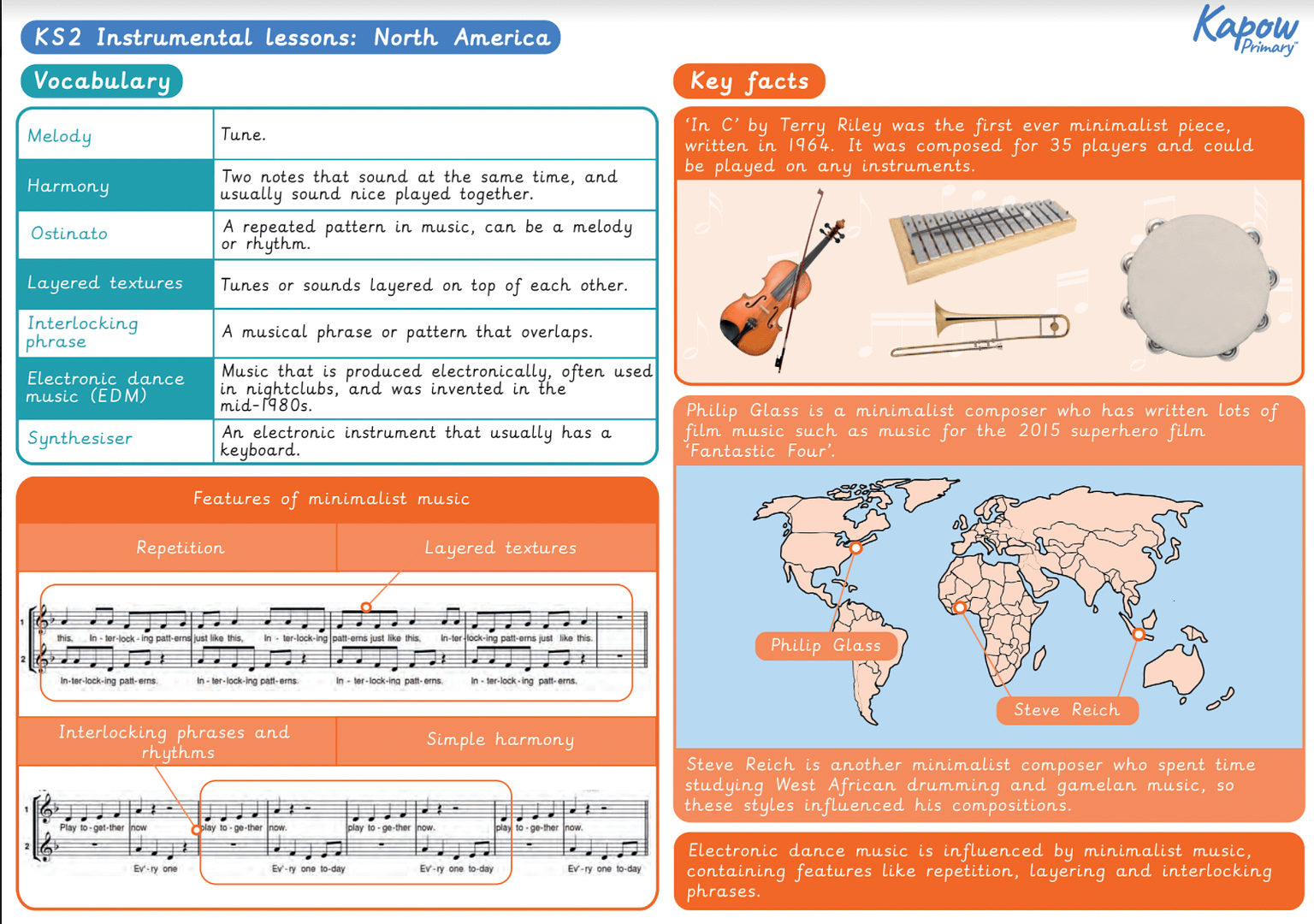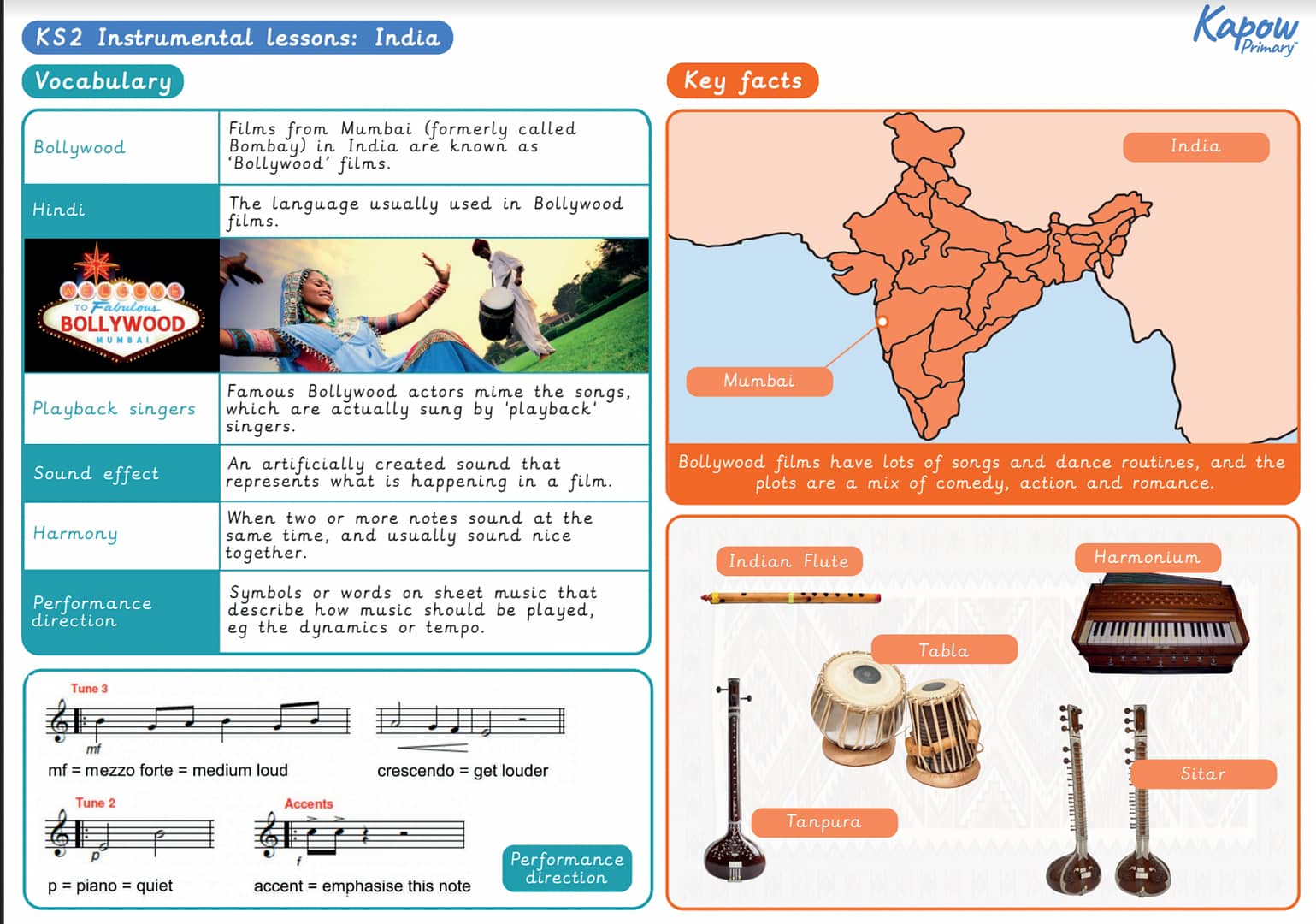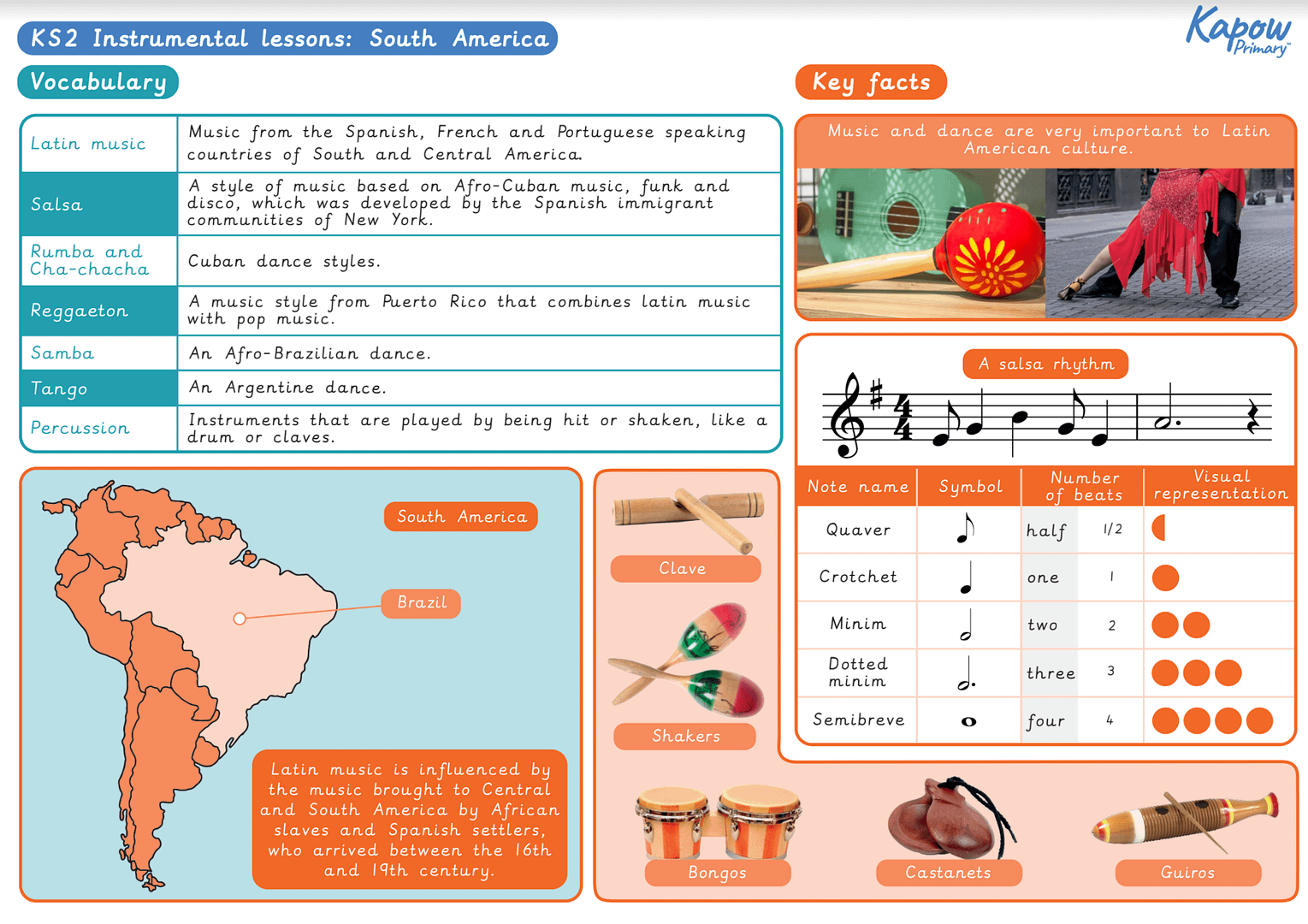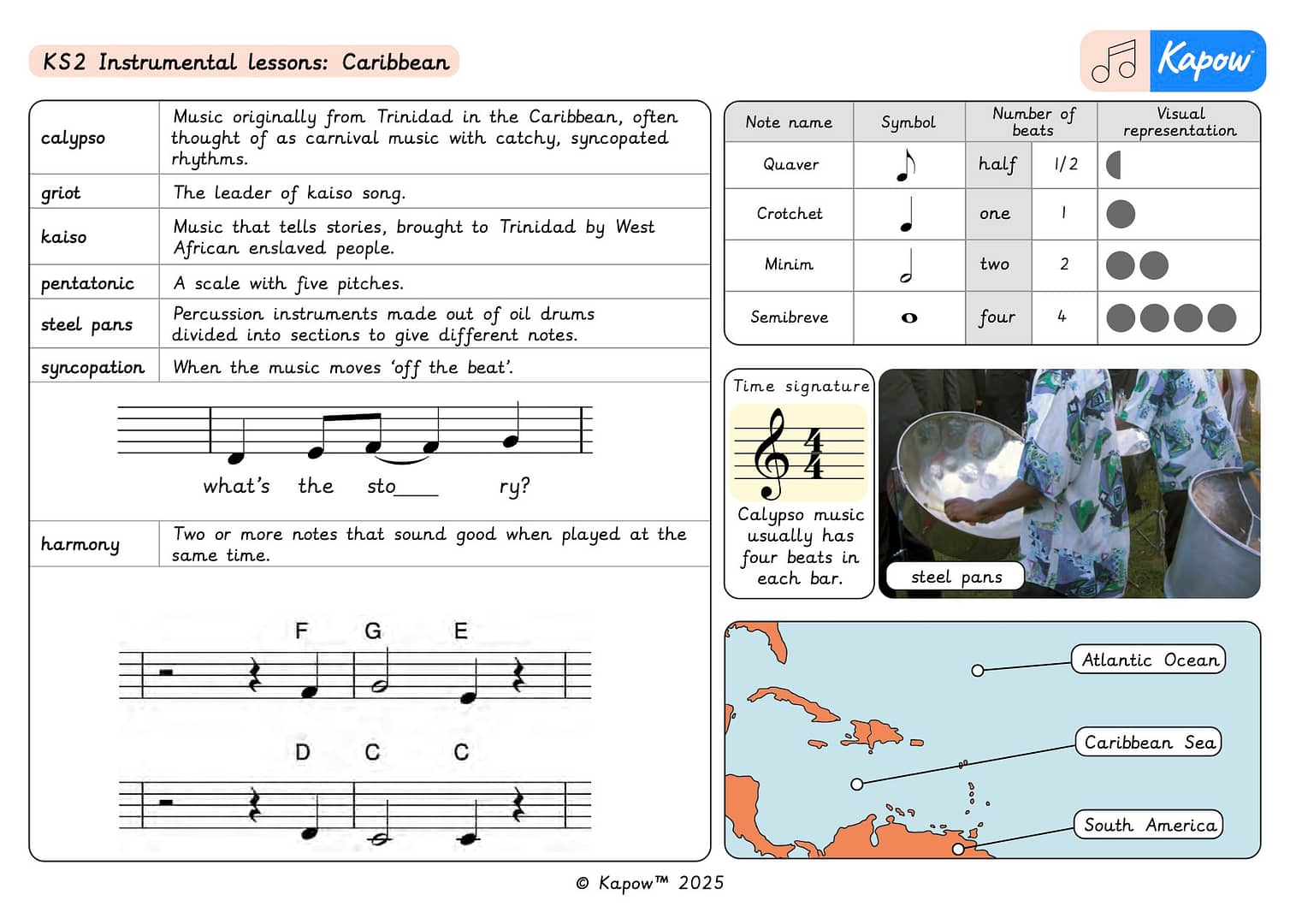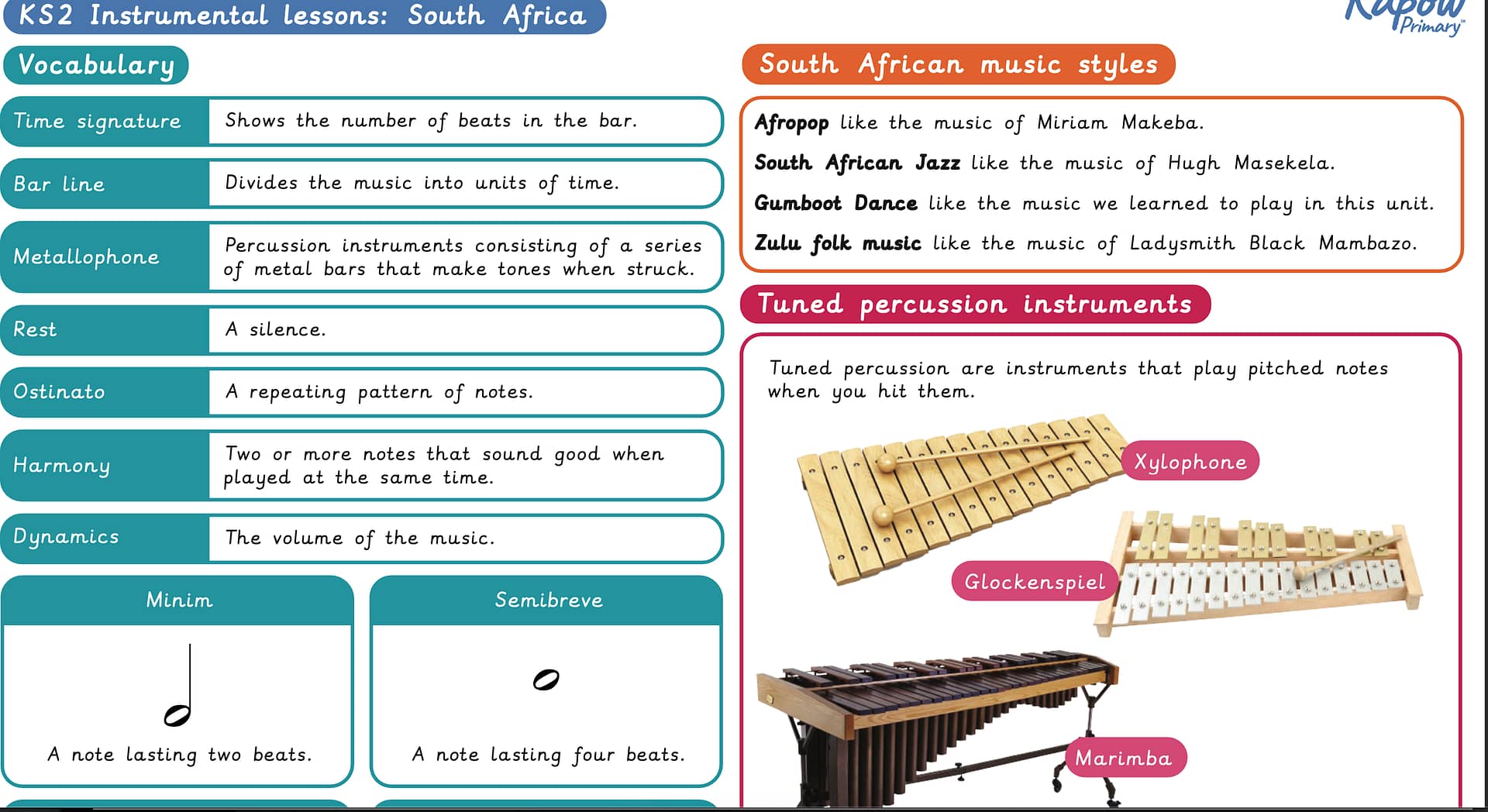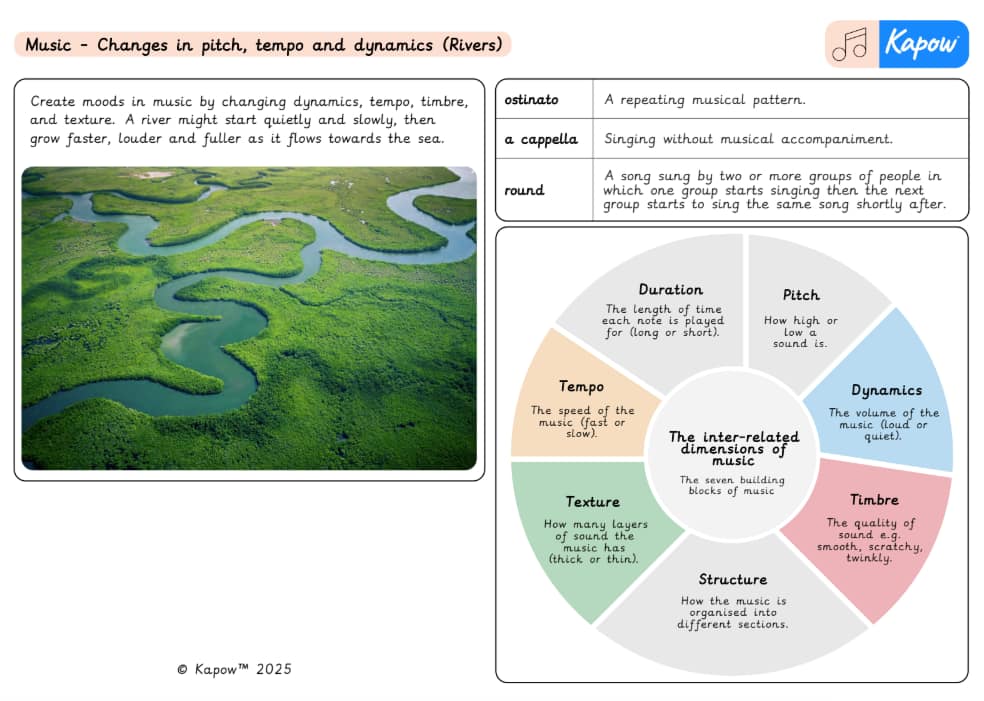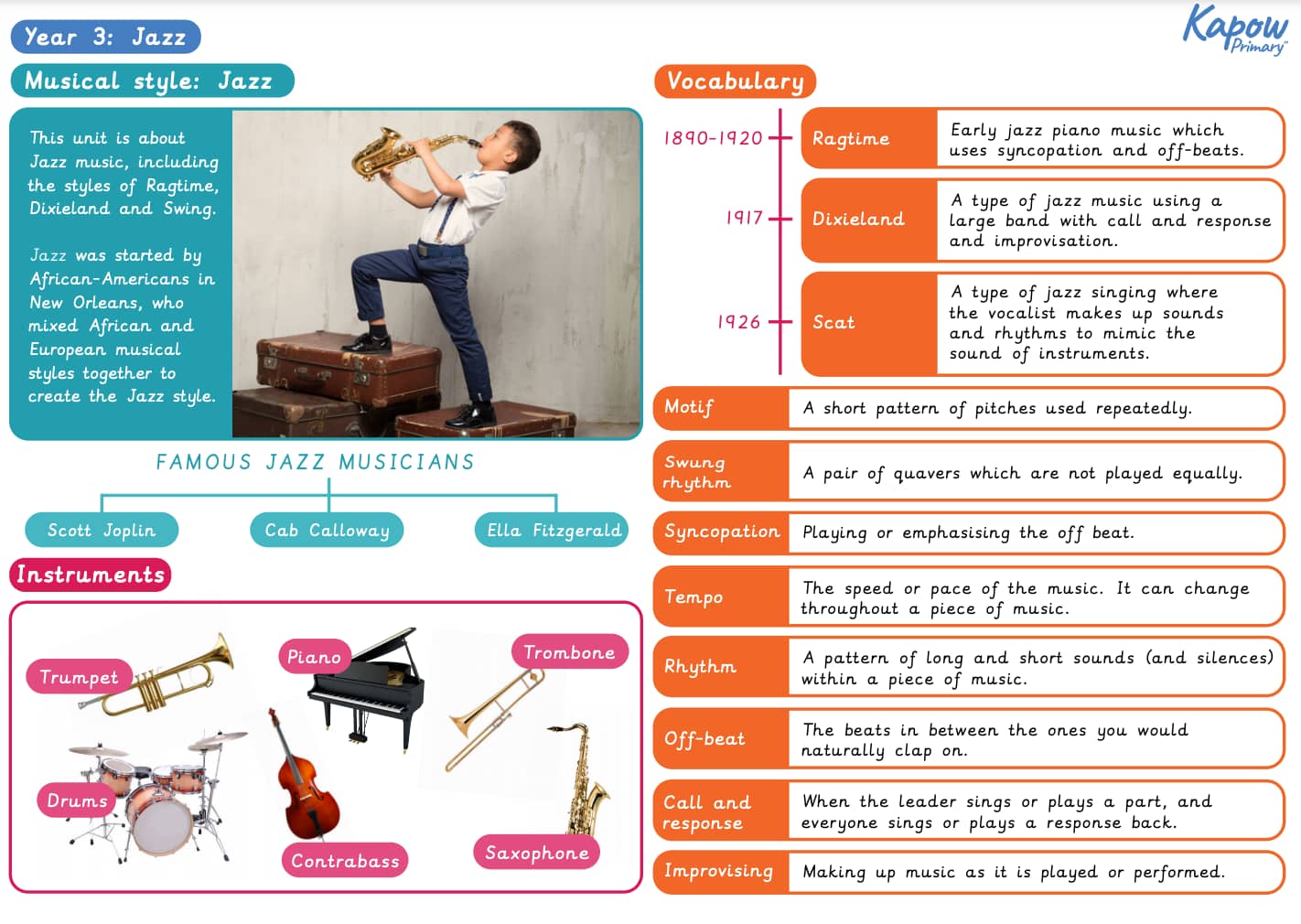Featured Document Type: Knowledge organiser
Knowledge organiser: Music – Y6 Songs of World War 2
Knowledge organiser: KS2 Instrumental Music: North America
Knowledge organiser: KS2 Instrumental Music: India
Knowledge organiser: Unit 3: South America (Instrumental lessons)
Knowledge organiser – Music KS2 Instrumental: Caribbean
A Knowledge organiser that captures the essential knowledge and skills learnt throughout the unit Music KS2: Instrumental: Caribbean.
This resource is designed to support the children as they explore Caribbean music through instrumental lessons. It highlights key vocabulary and concepts, including calypso, kaiso, syncopation, harmony and the use of steel pans. The resource introduces musical elements such as rhythm, time signatures and note values, and explains the cultural origins of Caribbean music, particularly its storytelling roots and connections to West African traditions. It is perfect for consolidating essential knowledge and fostering an appreciation of global musical styles through hands-on performance and listening activities.
Knowledge organiser: KS2 Instrumental Music: South Africa
Knowledge organiser: Music – Y4 Changes in pitch, dynamics and tempo (Rivers)
Knowledge organiser – Music Y3: Jazz
A Knowledge organiser that captures the essential knowledge and skills learnt throughout the unit Music, Year 3, Jazz.
This Music resource is designed to support the pupils as they explore the key characteristics of jazz music and its historical significance. It introduces key vocabulary such as syncopation, improvisation, swing, blues scale, and call and response, helping the pupils understand how jazz musicians create expressive and dynamic performances. The pupils will also learn about the influence of jazz pioneers and experiment with improvisation techniques.

